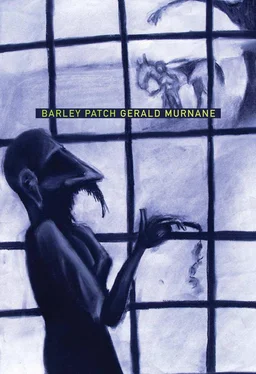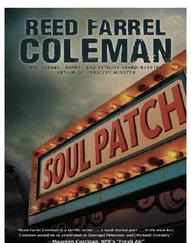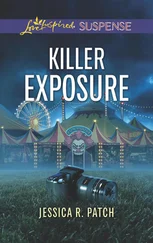Gerald Murnane - Barley Patch
Здесь есть возможность читать онлайн «Gerald Murnane - Barley Patch» весь текст электронной книги совершенно бесплатно (целиком полную версию без сокращений). В некоторых случаях можно слушать аудио, скачать через торрент в формате fb2 и присутствует краткое содержание. Год выпуска: 2011, Издательство: Dalkey Archive Press, Жанр: Современная проза, на английском языке. Описание произведения, (предисловие) а так же отзывы посетителей доступны на портале библиотеки ЛибКат.
- Название:Barley Patch
- Автор:
- Издательство:Dalkey Archive Press
- Жанр:
- Год:2011
- ISBN:нет данных
- Рейтинг книги:5 / 5. Голосов: 1
-
Избранное:Добавить в избранное
- Отзывы:
-
Ваша оценка:
- 100
- 1
- 2
- 3
- 4
- 5
Barley Patch: краткое содержание, описание и аннотация
Предлагаем к чтению аннотацию, описание, краткое содержание или предисловие (зависит от того, что написал сам автор книги «Barley Patch»). Если вы не нашли необходимую информацию о книге — напишите в комментариях, мы постараемся отыскать её.
Barley Patch — читать онлайн бесплатно полную книгу (весь текст) целиком
Ниже представлен текст книги, разбитый по страницам. Система сохранения места последней прочитанной страницы, позволяет с удобством читать онлайн бесплатно книгу «Barley Patch», без необходимости каждый раз заново искать на чём Вы остановились. Поставьте закладку, и сможете в любой момент перейти на страницу, на которой закончили чтение.
Интервал:
Закладка:
My mother’s sad stories, as she called them, were mostly about children who became lost in uninhabited places or became orphans at an early age. As with her ghost stories, I feigned sadness so as to oblige my mother. One of her sad stories worked on me differently. When I first heard it from my mother, I thought of it as the story in verse of a child named Bridget. A few years later, I learned that the words my mother had often recited to me by heart were three stanzas of a poem with the title “The Fairies,” by William Allingham. I learned this in 1947, when I was in the third grade of primary school. The poem was part of the contents of the Third Book in the series of readers published by the Education Department of Victoria. (My mother, who was not yet eighteen years of age when she conceived me, would have read “The Fairies” for the first time only eleven years before my birth, in the same edition of the Third Book that was still in use during my own schooldays. My mother had been compelled to leave school at the age of thirteen, but throughout her life she was able to recite by heart a number of poems from the Education Department readers. I never learned whether her teachers had required her to learn these poems or whether she had learned them of her own accord or, even, whether she had learned the poems unintentionally as a result of her having often read and enjoyed them.) I learned long after I had left school that “The Fairies,” which the compilers of school readers in the Education Department of Victoria had deemed suitable to be appreciated by children of about eight years, had been intended by William Allingham to be a poem for adults.
During the years before I was able to read for myself the stanzas about Little Bridget, I learned from my mother’s mournful-sounding recitations that Bridget had been stolen for seven years. (Until I actually read the poem, I was unaware that Bridget’s abductors were fairies; they were referred to only as “they” in the three stanzas. I thought of them as men in flowing robes.) When Bridget had returned home, none remained of her former friends. (Sometimes my mother would alter the text, using the phrase “mother and father” instead of the word “friends.” She must have supposed that I would be more affected by the thought of a child without parents than the thought of a child without friends. So far as I can recall, I thought of all characters in stories or poems as being without parents; even if their parents were mentioned in the text, I abolished the parents from my mind while I read. I knew what my mother was about, but when I grieved for Bridget I was grieving for a girl-woman who would have resembled the most fetching of the older schoolgirls that I was already observing even before I myself had begun at school.) I thought of Bridget as not only friendless but lacking all human company. She lived alone among the same tumbledown cottages and wild-growing garden flowers and English-seeming countryside that came to my mind whenever my mother recited the few lines she recalled from “The Deserted Village,” by Oliver Goldsmith. I could not suppose Bridget to be unhappy in this setting. I thought of her as going through one after another of the cupboards and drawers in the empty houses, inspecting keepsakes and reading letters left behind by her former friends. After an interval that I supposed was a few days, her abductors returned and made off with her a second time.
They took her lightly back,
Between the night and morrow,
They thought that she was fast asleep,
But she was dead with sorrow.
Whenever my mother recited these lines, I assumed that Bridget had died, even though her abductors had thought otherwise. In my eighth year, however, as reported above, I came upon the text of the whole poem. Staring at the printed words was far more satisfying than listening to my mother’s recitation. With the text safely in front of me, I had time for speculating; for calling into question the seemingly obvious. I was anxious, of course, that Bridget should not have died. Surely I had no choice but to accept the word of the narrator? My one hope lay with the abductors. How could they have mistaken a dead girl-woman for one who merely slept, especially when they must have lifted her in their arms from her bed and later set her down again? (I saw them as carrying her away on a litter.) I seem to recall that I mostly wavered in my understanding of the text, although a few years later I might well have resolved the matter by composing my own version of events: by writing in the rear of a disused exercise-book a few lines of doggerel that would keep alive a fictional personage whose original narrator had declared her dead. Even during my wavering, however, I must sometimes have acted boldly. It would very much suit the pattern of meaning in this work of fiction if I could report here that I decided once at least, when I was a mere child-reader, that a certain narrator was mistaken: that the truth about a fictional personage need not be available to the very personage who was supposed to convey that truth to the reader. It would very much suit my purpose in writing this work of fiction if I could report that I learned in my childhood that a work of fiction is not necessarily enclosed within the mind of its author but extends on its farther sides into little-known territory.
The story of Bridget, so to call it, is told in twelve lines of a poem made up of fifty-six lines. The last lines relating to Bridget are these:
They have kept her ever since,
Deep beneath the lake,
On a bed of flag-leaves,
Watching till she wake.
The verbs in this passage are no longer in the past tense. Often, as a child, I strove to prolong a narrative: to keep it from ending in my mind. I had no need so to strive with the story of Bridget. Nor were the last words of the text of the sort that sometimes sounded cheerfully at the end of a so-called fairy-tale. (“And for all I know, she may be living there still…”) The last words relating to Bridget were calm and assured; the narrator spoke with authority. The story of Bridget had still not come to an end when the last word had been written about her. But what could remain of a story when the chief character already lay dead? Again, I could wish to report that I once, as a child-reader, found reason to doubt a narrator of fiction. I could wish to report that I decided that the personages within the text knew more than the personage hovering over the text, as it were; the abductors of Bridget, watching by her bed, knew more about her than the man who had written about her. Or, I could wish to report that I stared at the last four words of the story of Bridget until they seemed to change in meaning; until a hoped-for event became an unexpected event, and, finally, an actual event. If I could report such as this, I could hardly report that Bridget, the fictional personage, finally awoke. The eventual awakening would have taken place outside the boundaries of the text composed by William Allingham. Bridget, by now subtly other than a fictional personage, would have been restored to her new existence in a place where neither reader nor narrator could lay claim to her; in a place on some or another far side of fiction. What sort of life was hers in that place neither William Allingham nor I could know, even if we tried to go on writing or reading about her.
As for Bridget’s being said to lie beneath a lake, I always resisted the notion that she was beneath the surface of the lake; that she was underwater. If she were underwater, so I reasoned, then those watching her would have had to be underwater also, and all of them would have long since drowned. (I was never able to learn the rudiments of swimming. Whenever I was told as a child to put my face into water, I closed my eyes and held my breath and supposed that I was drowning. I felt sympathy, years afterwards, for the men that I read about who put to sea off the west coast of Ireland in frail, handmade boats. Those men disdained to learn anything of swimming, believing that to do so would only prolong their death-agony if their boat were to capsize. From my point of view, anyone who ventured beneath the surface of an ocean or a river or a lake was doomed.) I was able to devise a safe place for Bridget because I had followed not long before certain episodes, so to call them, of the comic-strip “Mandrake the Magician.” In those episodes, Princess Narda had been captured by a man who seemed to live with his followers underwater. Whenever they retreated to their hide out, they seemed to disappear among willow-trees at the edge of a certain river, so that they were reputed to be amphibious beings. The author of the comic-strip encouraged this belief in his or her readers by depicting the leader of the abductors of Princess Narda as a man possessing no hair and no eyes and only the rudiments of nostrils and mouth. When the abductors had first brought Princess Narda into the presence of their leader, he, being without eyes, had put his hands on the face and neck and shoulders of his prisoner in order to satisfy himself that she was a good-looking young woman. When I studied the line-drawings of the man whose head and face was a fleshy dome, I was prepared to believe that he could remain for long periods underwater. I learned, however, from later episodes that the hide out of the abductors and their leader was not unlike the burrow of the platypus, which creature I first read about in the School Reader a year after I had first read about Bridget. The lair of the platypus was an underground hollow close to a watercourse. The hollow could be approached through either of two tunnels, one of them leading downwards from among scrub and the other leading upwards from below water-level. The abductor of Princess Narda wanted it thought of him that he lived underwater, but only one of the entrances to his hide-out was beneath the river, and Princess Narda was safe from drowning throughout her captivity. So, too, was Bridget after I had learned to see her as lying on her flag-leaves in a dry, airy cavern like that in which Princess Narda had been held captive. (I mentioned the platypus just above for no other reason than that I admired as a child the layout of its burrows. I read only recently that the eyes of the platypus remain closed during the many hours of each day while the animal is underwater, even while it feeds or copulates.)
Читать дальшеИнтервал:
Закладка:
Похожие книги на «Barley Patch»
Представляем Вашему вниманию похожие книги на «Barley Patch» списком для выбора. Мы отобрали схожую по названию и смыслу литературу в надежде предоставить читателям больше вариантов отыскать новые, интересные, ещё непрочитанные произведения.
Обсуждение, отзывы о книге «Barley Patch» и просто собственные мнения читателей. Оставьте ваши комментарии, напишите, что Вы думаете о произведении, его смысле или главных героях. Укажите что конкретно понравилось, а что нет, и почему Вы так считаете.












